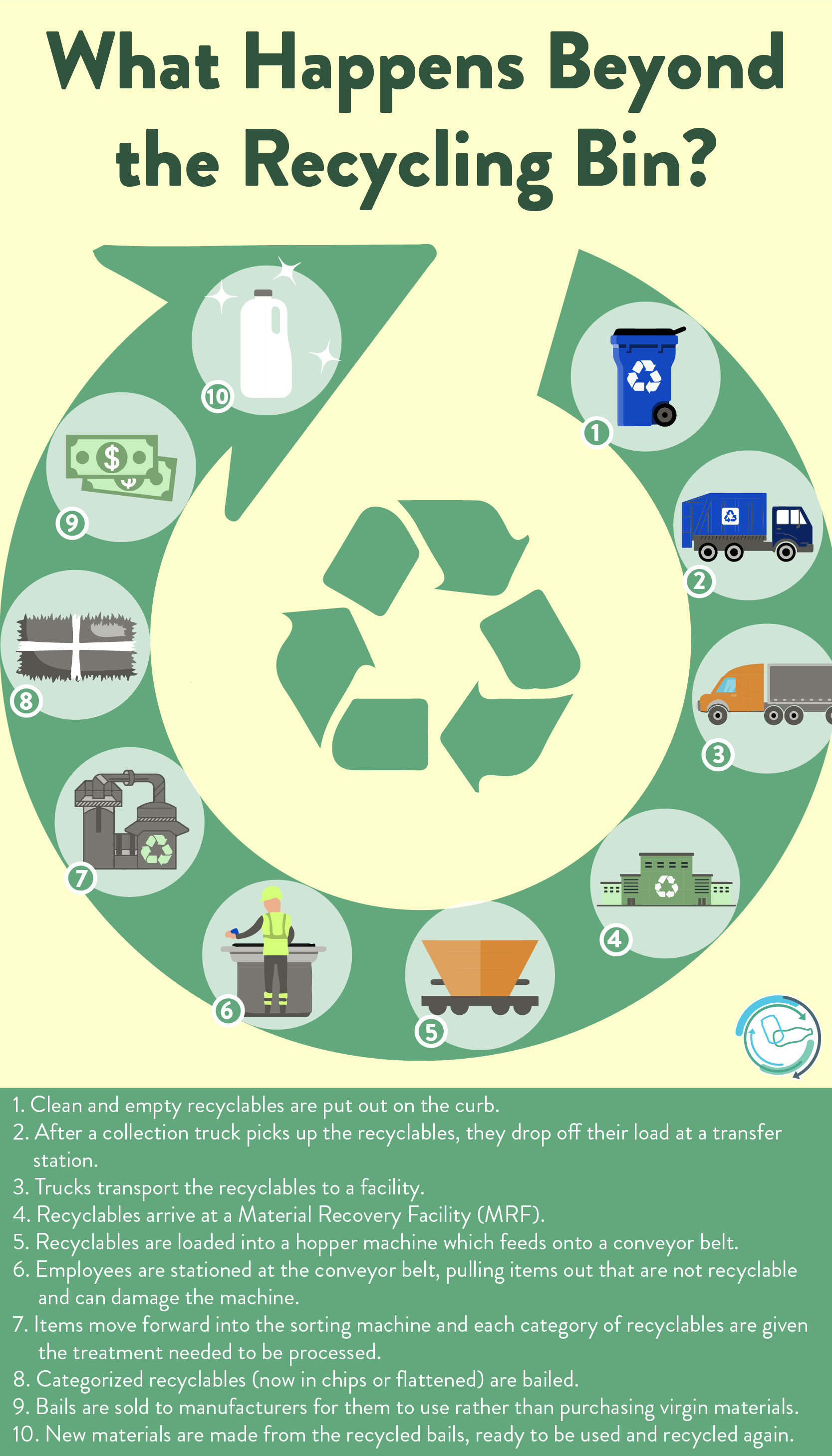You've decided it's time to recycle or maybe you just need more information. Great!
We've put together some Easy Steps to Recycling, that will help get you moving in the right direction. For a more detailed listing of recyclables, please check out our What is Recyclable page. Also, you can check out Creative Reuse Ideas for ways to recycle or reuse a variety of items.
Recycling doesn't have to be a big commitment. Just think, the few seconds a day you take to recycle will have a positive impact on the health, safety and cleanliness of your community - not to mention, the future of our environment!



Give yourself a high five, you're saving the planet and boosting the economy!
Most cities in the Dallas/Fort Worth area offer curbside recycling pick-up for single family homes along with your regular trash pick-up. However if you live in an apartment or in a city that does not offer curbside recycling pick-up you can use our Recycling Facility Locater tool to find a recycling location near you.
Good Job! Your decision to recycle will have a tremendously positive impact on our environment.
After you properly dispose of your recyclables, they will be taken to a Materials Recovery Facility (MRF). At the MRF, the recyclables are sorted and separated by hand and/or machine into different types of materials. The MRF then sends each item to (re)manufacturers as raw materials, and they make it into brand new products.
Did you know? When plastic bottles are recycled, they can be made into lots of things:
t-shirts, sweaters, fleece jackets, insulation for jackets and sleeping bags, carpeting, or new bottles. It takes about 10 bottles to make enough plastic fiber to make a cool new t-shirt. It takes 63 bottles to make a sweater.
Once your local curbside pickup occurs, you may wonder what happens to your rinsed-out cans and milk jugs. After the recycle collection trucks finish their rounds, they will deliver the recyclables to a Materials Recovery Facility (MRF - pronounced "Merf").
Upon arrival at the MRF, the recyclables will be loaded onto a conveyor belt. As the conveyor belt makes its way forward to the sorting machine, employees of the facility are stationed at the conveyor belt, pulling items out that are not recyclable and could damage or break the sorting machine. According to a 2019 waste characterization study, the most commonly found items they have to pull out are garden hoses, chains, single use plastic bags, propane tanks, food, yard waste, and needles. While there are sets of helping hands to do this job, it can be dangerous as not all unrecyclable items can be pulled fast enough and could still make it’s way into the machines, causing damage. Some of the worst known offenders that MRF’s see are dirty diapers or medical needles/syringes (usually from at home or personal use).
Once the machinery has sorted the recyclable materials, each category of recyclables are processed and bailed based on the type of material. These bails of recyclables are sold to another processor that converts the items to a usable material, or to manufacturers for them to use rather than purchasing virgin materials.
Every time you recycle an empty, clean and accepted item, you are helping the environment and the economy!
